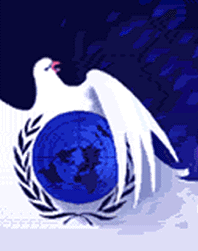
|
PC
Model United Nations
|
|
|
 |
|
|
|
The
UN's Role in Reconstruction
|
|||
|
|
Much of the interest in the United Nations in recent years has focused upon the reform of its main governing institutions such as the Security Council, and its performance in peace-keeping operations. This interest has highlighted a "financial crisis" in the UN as a whole. Relatively little attention, however, has been paid to whether or not funding difficulties have jeopardized its role in the economic and social development of poorer countries where, "according to the UNDP, around $5 billion annually is provided by all UN funds, programmes and specialist agencies combined." (ODI) This paper is meant to show the evolution in the UN's work in development, as well as evaluate its contribution to global assistance efforts, and explicates how the UN's main components have been financed in previous efforts (and how financial support has been changing). The main focus is on the United Nations Development Programme (UNDP), the World Food Programme (WFP), the Children's Fund (UNFPA), and High Commission for Refugees (UNHCR). Lastly, the UN's role and ability to work on the reconstruction of Iraq, as well as what level of involvement that the UN should have in the reconstruction process.
Even though the UN's regular budget and peace-keeping operations have placed a lot of pressure on the loyalty of its members, and instigated calls for an organizational reform as a condition for payment of contributions, however, the pattern of funding for development does not seem to show such levels of concern. There is concern however, about the future funding levels for the UN's role in development. The concerns appear to be real, although there is an understandable delay between changes in funding and the reflection of such changes into tangible data. The evidence for such a decline in funding is piecemeal, but increasing. Figures for the core funding of UNDP for 1996 show a drop in contributions from eight to ten of the largest funders. The American Overseas Interests Act of 1995 pledged "to responsibly reduce the authorizations of appropriations for United States foreign assistance programs for the fiscal years of 1996 and 1997, and for other purposes" (US Congressional Record). According to the OECD the "oda from DNC countries in 1995 dropped by nearly 10% to its lowest level as a proportion of GNP since records began, while overall oda contributions to the UN also fell, although only marginally." (ODI) Programmes within the UN, as well as their funding are affected not just by general decline in development assistance but also by the associated drive for more effectiveness and better "value-for-money". Due to a decline in funding, new sources are being considered in order to supplement the dwindling funds, as well as maintain much needed programmes but most importantly to counter the impact the reduced funding has had on core funds. Unfortunately, there does not seem to be any reversal in the trend of declining funding. Based on the evidence of such trends, the UN's ability to maneuver freely in development activities is slowly being undermined and cut back. Because of the financial setbacks that the UN as an organization has faced in recent times, it will be very difficult for UN funds and programmes to assume the position leadership that they were given in an international effort to promote development. The extrapolations of recent trends imply that although the UN will continue to play a substantial role in international development, reorganization is required to take account in the shift in member state's priorities. With faith in the ability of the UN declining in some parts of the world and the gradual decline in contributions by some substantial member states, it is imperative that the UN as an organization take a leading role in reconstruction and development in order to prove to its member states that it has the ability to do what it was created to do. The recent overthrow of the Iraqi government and the subsequent need to rebuild is a prime opportunity for the UN as an organization to take a leading role in the reconstruction and thus restore faith in its organizations and commissions and thereby potentially increase contributions by member states and thus help alleviate the recent economic difficulties of the organization as a whole. The role of the UN
in the reconstruction of Iraq should be one of leadership in setting up
democratic elections and general reconstruction rather than a secondary
one. It is important that the UN not allow the United States and its limited
circle of allies to have full control of the reconstruction of Iraq as
it would be a mistake to give the appearance to its member states that
it is no longer able to so what it was created to do.
|
|